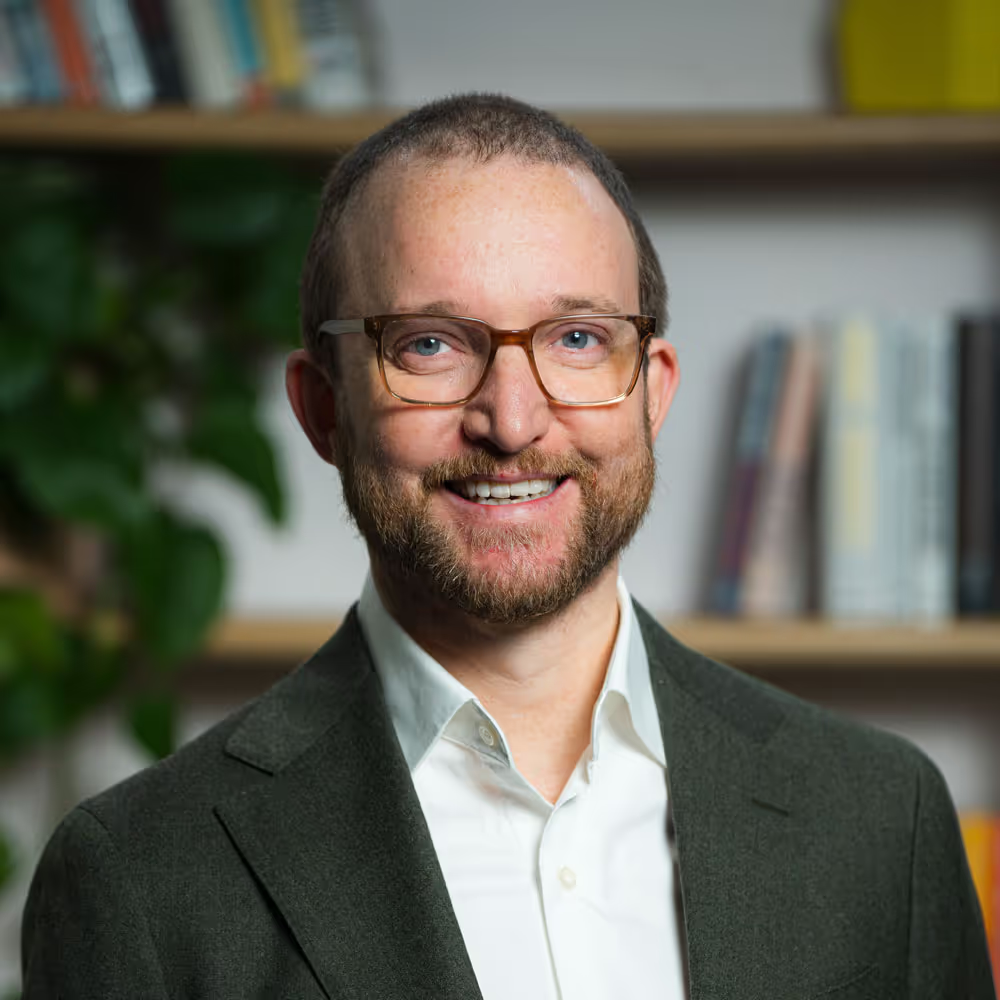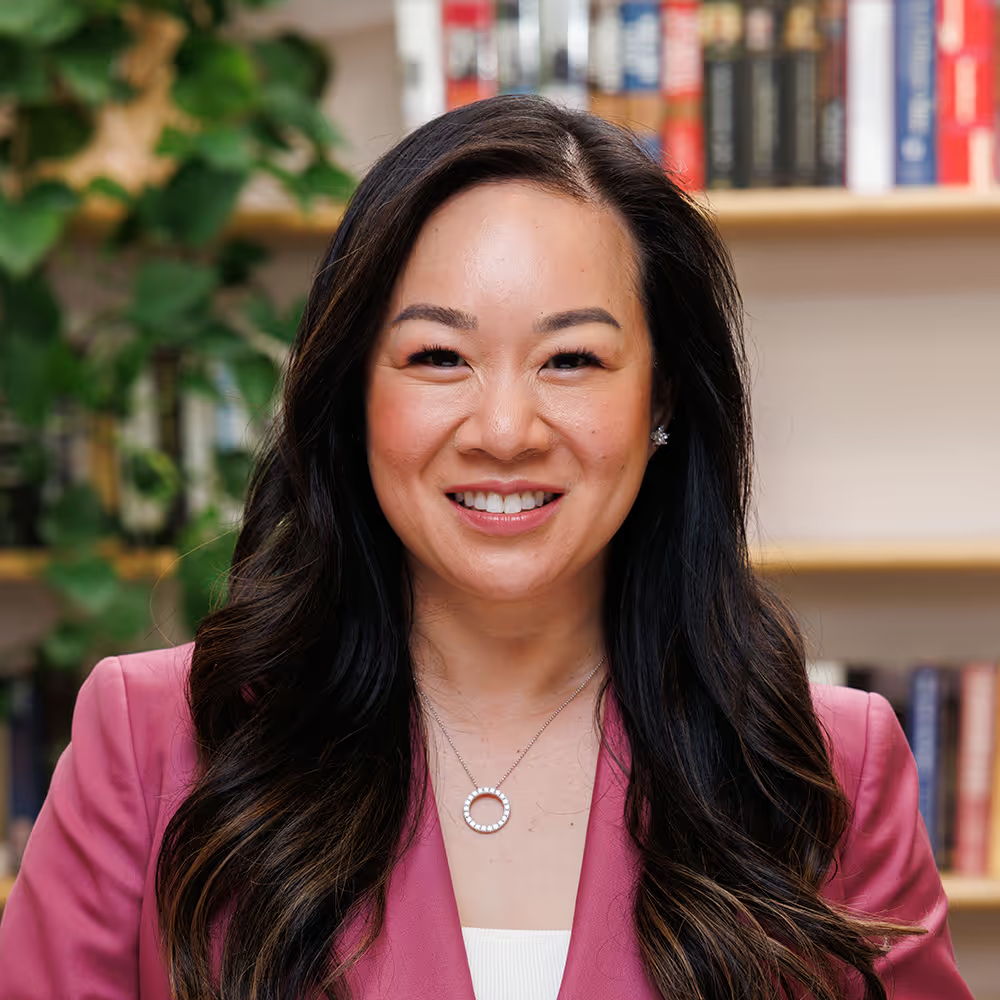An interview with Josh Blanksby – CEO, Melbourne Racing Club
13
August
2024
1
min read
.avif)
In the York Park Group Interview Series, we speak to leaders across Australia to understand their thoughts on reputation, strategy and leadership. The inaugural interview is with Josh Blanksby, outgoing CEO of Melbourne Racing Club.
Josh Blanksby started at Melbourne Racing Club (MRC) more than ten years ago after a career in law and gaming. In his last month in the role of CEO at the MRC, Josh sat down with York Park Group Managing Director, Sean Sammon, to talk about building and managing the reputation of the MRC, maintaining relationships, corporate affairs and having a successful and balanced career.
How do you define your organisation's reputation and what role does it play when you’re making decisions?
“I think our reputation is seen as a club that’s progressive, willing to try things, willing to challenge the status quo.
“At times I unfairly have a reputation of not being focused on racing. I think I’ve spent a lot of my time trying to battle that argument, by explaining to people the reason why we’re so focused on non-racing revenue is to promote the sport of racing due to some of the revenue declines facing the sport.
“So sometimes our reputation has been seen as me getting called a property developer or a pub baron, when, really, we’re doing all those businesses for the core purpose of racing. That lends us to making decisions and things within the organisation by being progressive.
“It allows us to try a lot more different things and get the license to do that. I’ve utilised that to get board approval on things such as collaborating with Racing NSW on the Everest, which was pretty controversial in Victoria. We were able to demonstrate that we were willing to work and challenge the status quo. That’s how our reputation then plays into the decision making.”
Did reputation follow the plan, or did you have an idea of how you wanted the club to be perceived and then the plan followed that?
“My predecessors were probably the ones who really grabbed that mantle and said they wanted to shake things up, and in their words, convert a lazy balance sheet into revenue generating activities.
“I think if they didn't have that vision of wanting to challenge the status quo and be progressive, then we wouldn't be able to attract the talent that we could. People such as myself and a number of executives all joined at a similar time because of that vision.
“Sometimes you’ve got to put the vision forward and then your actions will follow. Obviously, Melbourne Racing Club - where it’s sat in the history of racing - meant that we could play that role.
“I respect Flemington and Victorian Racing Club for the Melbourne Cup and what it is. That does also then strangle them a little bit from a strategy and vision point of view, because it’s just so important. Whereas when you are the up and comer you can try a few different things, it allows you to have that license.”
As a leader and someone who’s busy, how do you build and maintain important relationships with your key stakeholders?
“That’s something I absolutely prioritised, whether in my current role as CEO or previous roles across corporate affairs.
'It’s the one thing you can do in terms of important stakeholder management, and it’s got to be genuine. I think people would say the relationships I have with them are genuine, whether they’re friendly or not, at least they’re genuine and that’s the feedback I’ve had.
“It’s simply making sure that you are prioritising relationships, so it’s that regular catch up, touching base whether its formally via lunches or coffees or whether it’s just informal. It has to be genuine, otherwise people see through it pretty quickly - and you get that feedback pretty quickly - that people don’t want to spend time with you.
“We spend a lot of time on guest lists, being strategic about it, who we invite, where we place people, where they sit and that matters.
“It’s something that you taught me about being really genuine and how you get people to come to your events. I test success on how long they stay at the event - a lot of people come as a token and then leave. We’ve been able to successfully provide a safe place where people enjoy it and feel like they’re not being completely bombarded.”

What is something you now know about corporate affairs or reputation management that you wish you’d known earlier in your executive career?
“People have long memories; I think people in political circles have long memories. At times, because of my legal background I came across things very transactionally. I was like: 'Well, I’ve made the case on a transactional basis so therefore it’s a no brainer'.
“Understanding that there are nuances to these things and they’re not always financial decisions. There are reputational matters, there are ongoing relationships - so just understanding a little bit more about that.
“The reason I bring up the long memories is that if you have a genuine relationship, you might not be able to get exactly what you want initially, but over time, that personal trust gets built and more things can be done.
“That was probably the biggest thing that when I first came into the role I was simply like: ‘Well, I presented a great case, it’s an obvious no brainer”. But that’s just not how the machinations of stakeholder management and especially political circles work. So, understanding that slower burning.”
You started out as a lawyer. How has that approach and your mindset influenced your executive career?
“I think it’s been a positive in getting me to a higher level because lawyers are always in the room for every important matter that happens in business. Being a legal counsel gets you exposure to people such as the CEO, the higher executives and the board. You’re going to be there at the pointy end of most transactions.
“Where it’s probably hindered me a little bit, is the thinking that lawyers sometimes bring in, which is a real black and white view of the world and again a little bit transactional. I think that’s probably hurt me later on. What I had to really work on was nuance, solving problems different ways, realising there are win-win situations.
“Lawyers come from a thinking of if 'I win, you’ve lost', that’s just the way you’re brought up in transactional law. I think understanding, trying to find different ways to have win-wins, has been something that’s a benefit to me and allowed me then to go for that next step.”
An incredible ten years at Melbourne Racing Club, record membership, phase one of the Masterplan. What’s been the highlight?
“Probably the culture that I’ve been able to implement- and it wasn’t just me, my predecessor worked hard at this as well.
"I love when I hear from external people that they hear how good of a place to work it is. I get that feedback a lot. It's seen as fun, progressive, collegiate and I think that is evidenced in things such as our staff turnover, which is pretty low.
“I’ve had a strong executive and senior management team that have sort of come up with me so that’s been a positive. Things such as being an Employer of Choice two years in a row and having strong engagement scores. I think that’s what I’m most proud of.
“I was a beneficiary of succession planning and learning and development, and throughout my career I've really focused on that. So, it's nice to see people I started working with years ago, moving to new roles and come up through, whether that's with our organisation or outside our organisation as well.
"We still pride ourselves on someone like Peta Webster going off to the AFL and doing great things, or Alex Dobson going off and running property development, I think that's a good sign for an employer.”
What’s something you wish you’d done differently or a project you wish you’d had the chance to complete?
“Obviously the Caulfield Masterplan was and is a legacy item. Of course, I would love to be seeing it right through and delivering the final grandstand with the lights.
"But someone wise once told me that, these masterplans, no one is ever going to be at the start and also be at the end. I was at the start, we mapped it all out with some key people and so I’m pretty happy with that.
“That’s probably the number one thing -but these jobs, they’re sort of never ending. The club’s been here 150 years and will be here for another 150 years. I would just hope that my ten years here, people would say that I did something and had a go. I don’t think people could ever criticise us for that, some things did work, some things didn’t.”
Who is a leader you most admire or look up to in Australia?
“I would say Mike Symons, our former Chairman - he had a different style to other racing administrators. He viewed the traditional race club differently in a very commercial sense, which I think racing needed to do.
"There are critics for that because people say you’re not there for the core sport of racing, but actually everything you’re doing is for that reason.
“He had a clear vision and what I’ve learned from Mike was that he got subject matter experts in, he got good people in to do it and didn’t think like he had to solve it all.”
What’s the best advice you were ever given, and did you follow it?
“Hire better people than you in those areas, hire people that have skills sets that you don’t have. I think I’ve been able to do that in things such as the pub business we operate in and the property business.
“The biggest failures I see with managers is they feel if they keep a gap between them and their staff, that’s going to reflect well on them, and they are going to be indispensable and I’ve seen that fail a few times.”
What's a book you’re currently reading or recently read?
“I read the history of Macquarie Bank; the reason why is one of my sliding doors moments in life was I had a job offer from Macquarie Bank in 2007 when I was coming back from overseas. At the same time, I had a job offer from Betfair, which was a fledging wagering operator and had four employees at the time. Every single piece of advice I got was take the Macquarie Bank job - 'it’s a slam dunk'.
“Then I got a very good piece of advice from a friend that said how do you read the paper? I said I read the paper from the back, and he goes: ‘Yeah, I know you do - I read from the financial pages, you read from the back, you’re a sports person and that’s what you want to do. Take up this opportunity’.”
What advice would you give to someone just starting out in their professional career?
“When you’re making decisions about where you’re going to work, really think about the culture and who you’re working with.
"I know everyone talks about that, but it really matters. It matters more than what you’re selling, what service you’re providing. You spend a lot of time with those people and if you’re in an environment which is facilitating growth and creativity, it really matters.
“It hasn’t been perfect at Melbourne Racing Club the whole time I’ve been here but there’d be moments where it felt like everyone was rowing in the same direction and we really got a lot of stuff done.”
.avif)
Josh Blanksby is CEO of Melbourne Racing Club, in the role since December 2017 and previously being the Executive Director for Racing and Corporate Affairs, and the General Manager for Legal and Corporate Affairs. In his time Josh delivered the first phase of the Caulfield Masterplan, negotiated a significant partnership with Sportsbet and was instrumental in establishing the MRC Foundation which has raised over $5 million for various charities. Previous to his time at MRC, Josh was the Director of Legal and Corporate Affairs at Betfair for seven years after starting out his career as a solicitor for Freehills.
24
February
2026

Defending against AI fakes
Read news article
24
February
2026

Defending against AI fakes
Download White Paper
23
February
2026

Copyright was built for humans. AI has changed the context
Read news article
23
February
2026

Copyright was built for humans. AI has changed the context
Download White Paper





.webp)
